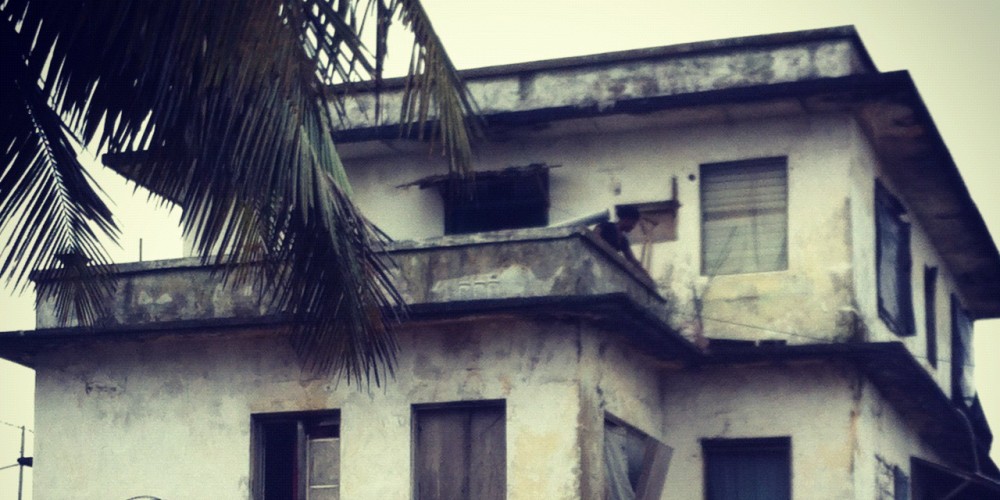Reposted from Marc Maxmeister on ChewyChunks
Katie Meyler has been telling stories of how the people of West Point slum in Monrovia, Liberia overcame Ebola:
This little girl and her brother and sister lost their parents. The auntie is asking me to help her by taking the kids. I asked her, “If someone helped you support and empower her, would you could feel happy raising your sister’s children?”
“Of course!” She said.
Rebecca tells me she has symptoms and is scared. I took my gloves off and let my hair down because I was leaving for the day. I wasn’t scared, because she looked strong. We are bringing her meds and will keep a close eye on her. Obviously this is agonizing but we are doing all we can. Please pray for Rebecca with me.
I talked to local medical staff about serving West Point. Everyone I met was really lovely. There were 20 or 30 body bags with deceased people inside. I was scared but also at peace. This place has things under control.
Community leaders made the rounds in West Point and found 45 sick people in the areas they were able to check. Unfortunately, all of the clinics are at capacity and not able to receive people.
These are stories of people trying to be resilient in the absence of any real government help. These slum dwellers had only two options if they wanted to survive: wait for the Powers to come save them, or become self-reliant. Resilience won, because they were used to being ignored. And while the medicine, supplies, and training were delivered by non-governmental groups like MoreThanMe, the people running the ambulances, screening citizens, and handing out the food were community members. The community saved itself. It illustrates a larger truism that we keep denying: Only the Poor can end poverty. Allow me to explain why.
First, a little more of my backstory. My job for the past few years was figuring out how to give Voice to the Poor. I ran an East African storytelling project with GlobalGiving from 2010 to 2013. It showed that the Poor clearly were the “experts” on what they needed, and knew how their governments could solve big problems. But my straightforward approach – collect their first-hand testimony and present it to those in power – wasn’t enough. Why? Because governments and international agencies are not built for listening. They have no effective mechanisms to redress complaints. They don’t give local leaders and local solutions a fair hearing.
Most people are eager to speak up at first, but experience teaches them that Power doesn’t care about the Poor. If they complain about a program, the donors too-often go elsewhere and start over, leaving those people with nothing. Spurned and punished for their participation, they don’t speak out.
It is not just organizations. Governments and business have also taught the Poor to merely accept what is offered. Business offers the Poor jobs that sacrifice wages or safety through the unregulated markets of Globalization. Governments are “representative democracies” at best, not direct democracies. Few representatives really listen to the Poor. Power listens to Power. The Poor survive on what they get, and only take to the streets and assert their rights when hardship becomes unbearable.
But sometimes a community does come together and builds something. Ebola’s demise in 2015 is the story of local leaders rising out of the chaos and helping neighbors choose resilience over fatalistic resignation, as I profile in my book.
Their stories are often untold, because telling their story to outsiders doesn’t help them along the path of self-reliance or survival. A reporter swooping in to get the story gives the storyteller fresh hope that someone will save him. There are millions of international do-gooders in the world spending their lives in an effort to help the Poor. We live among the Poor. We listen to them. We share their stories with a broader audience. Sometime we raise awareness about an issue. Occasionally we inspire the Poor. But mostly we offer a twisted hope that keeps them off the path of self-reliance. We cannot end poverty for the Poor, only enable to Poor to lift themselves up.
In a famous letter from a law professor to his student, Bill Quigley writes:
“Many come to law school because they want to help the elderly, children, people with disabilities, victims of genocide, victims of racism, economic injustice, or religious persecution. Unfortunately, the experience of law school and the legal profession often dilute that commitment.”
It is a harsh lesson I keep learning over and over. Regardless of my tactic, Peace Corps, science, banking, or medicine, the end result only moves the Poor a few feet from where they once stood. No mix of skills or tools or toys may ever work if I am the one holding the chalk, the shovel, or the smart phone.
Singing “No one is coming to save us!”
Katie Meyler once said that things started getting better when the people of West Point slum starting singing “No one is coming to save us!” It was a turning point. They understood that local leaders were their best hope for survival. The people were finally taking charge of their own future. The narrative changed from being about the failure of outsiders to the success of the community. And when West Point slum’s death toll fell far short of projections in the months that followed, locals could look at each other and say with pride, “We did this ourselves!”
This isn’t about outsiders abandoning the Poor, but about truly Serving the Poor.
But in our world, when stories like these are told by outsiders, the people who supply the materials take the credit. The bags of rice are stamped ‘US AID from the American People’.
 The medicines and the trucks and the soldiers all have branding. But the people remain anonymous because they are the community being helped. It is a false narrative to separate the helpers from the helped. Serving the Poor means being in the community, without identity.
The medicines and the trucks and the soldiers all have branding. But the people remain anonymous because they are the community being helped. It is a false narrative to separate the helpers from the helped. Serving the Poor means being in the community, without identity.
Instead, the locals are given supporting roles, first in the narrative, and later in the power restructuring following success (during the elusive “project replication” phase that funders seek). The meeting rooms usually look like this (a bunch of acronyms working together):

Newsmakers and storytellers and politicians must unlearn bad habits. Every success story is, at its core, about people helping themselves. We outsiders are mere bystanders. But with hard work we can become true servants.
Take another example, this time from the 1960s US Civil Rights movement. One witness tells the story of the political parade that was the funeral for Rev. James Reeb, who was brutally murdered in Selma in 1965:
From the balcony I saw a sea of dignitaries clearly unrelated to the events in Selma. Many faiths had come to pay tribute in this memorial to James Reeb. Until Dr. Martin Luther King himself spoke, it is hard to imagine a more jumbled collection of prepared prayers and speeches rattled off in a patronizing way. It was ecclesiasticism at its worst. James Reeb’s death was described as the most monstrous example of brutality, when in fact it was one more instance in a long series. Men who had not taken the time to meet any young people praised them for their courage. The men and women who had come “thousands of miles” for the memorial were extolled. I thought that it was not too difficult to come and go in 24 hours and have the vicarious experience of heroism through singing a few freedom songs.
When King began to speak, however, it suddenly seemed right that we should all be there. Everyone moved a bit in his or her seat when King asked rhetorically,
“Who killed Jim Reeb?”
He answered: A few ignorant men. He then asked,
“What killed Jim Reeb?”
and answered: An irrelevant church, an indifferent clergy, an irresponsible political system, a corrupt law enforcement hierarchy, a timid federal government, and an uncommitted Negro population. He exhorted us to storm the bastions of segregation and see to it that the work Jim Reeb had started be continued so that the white South might come to terms with its conscience.
This account captures the movement as well as a pan-out to illustrate the circus around the movement. Power lives a circus life. I too had that experience and blogged about it.
So if local efforts do succeed, outsiders swoop in and take all the credit, and the Poor are pushed out of the limelight. Outsiders get promotions and the Poor find themselves only a few feet from where they began. Though nothing is won entirely without cooperation – and everything is at least partly enabled by those in Power – the distortion of who deserves credit is so large in the International Aid world that we’ve forgotten why it ever works at all. Everything starts because a community buys-in, and ultimately survives because a community takes ownership. We are just drifters and gamblers in their story.
Only the Poor can end poverty. But the rest of us can make that journey lighter.
One way is by emulating organizations like MoreThenMe.

It was no accident we find them in the slum at the center of a strong network of relationships. Katie spent 9 years there working for the community as a humble servant. Then in December of 2014, Time Magazine anointed her “Person of the year.” Now she’s brunching with billionaires instead of begging for books. But it is the same Katie, doing the same work. Serving Pearlina and Rebecca and other girls who deserve to go to school. She is part of the community. She was amazing and unknown before; now she amazes a bigger audience with grace:
They did not invent the process of community-building. It has been known for thousands of years. It is explained in Sun Tzu’s The Art of War:
“Come among the people.
Live among them.
Work with that they have.
Build on what they know.
And when the work is finished, they will say,
‘we have done this ourselves!'”
There has never been a better credo for fighting poverty, nor a better description of resilience. There are many technical ways to stop Ebola, but underneath every successful strategy is an appetite to empower resilient communities in precisely the way that Katie has. She didn’t know much about Ebola, but she knew a whole lot about inspiring people and organizing groups.
This is the most important lesson in my Ebola book for how we deal with the next crisis. Local leaders exist in every community, but too often our international systems co-opt their power and authority, replacing them in a state of emergency instead of empowering them. The sooner we can get a community singing, “No one is coming to save us,” the sooner that community can come together to save itself. Only then – and only through pre-existing local relationships – can international help be effective. No one from the Red Cross, WHO, CDC, and US army can live Sun Tzu’s credo in every town that might face a disaster in the future, and so these institutions need thousands of local allies. Only local voices can sing the melody in the resilience song.
A pro-Poor environment
If we want to hear the Poor speaking up, we must give them space to lead. We can create mechanisms to connect local voices with better performance in foundations and government (Keystone Accountability’s mission). We can reign in our proxy-democracy and make it more direct through functional citizen feedback loops (FeedbackLabs’s mission). We can listen to the Poor and let them speak in their own words (GlobalGiving’s Storytelling Project). These are all steps on the path to prosperity, but they are not the whole path.
I offer a deeper dive into these issues in my book, Ebola: Local Voices, hard facts on Amazon.


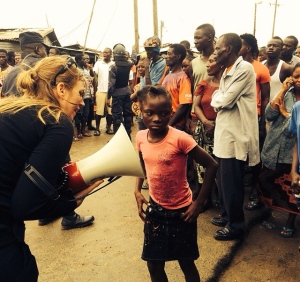
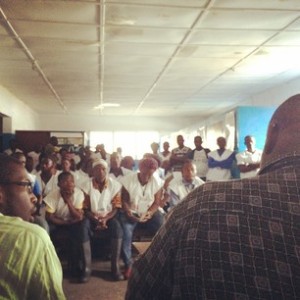
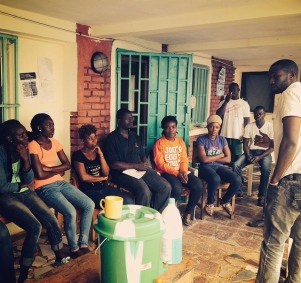





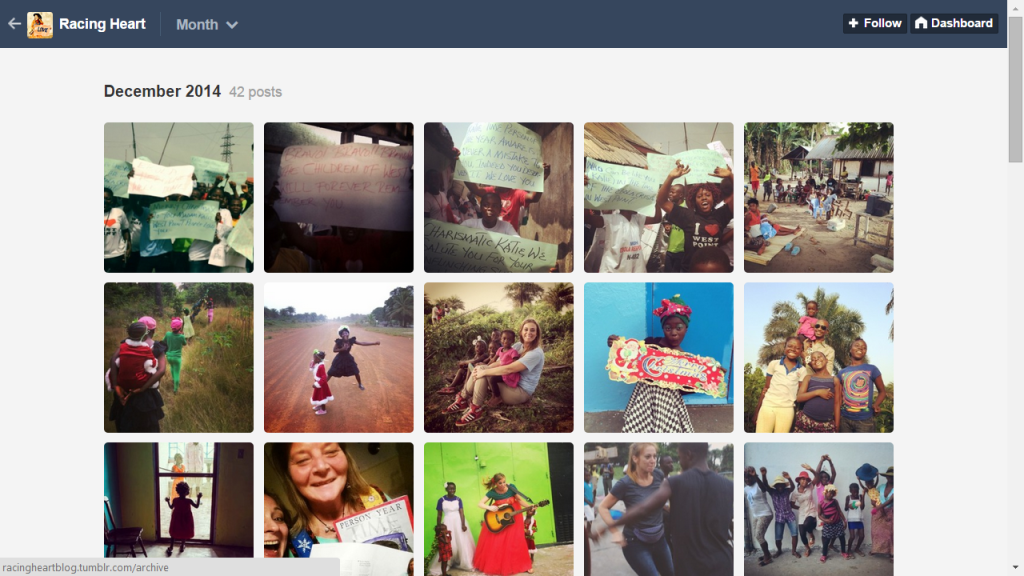













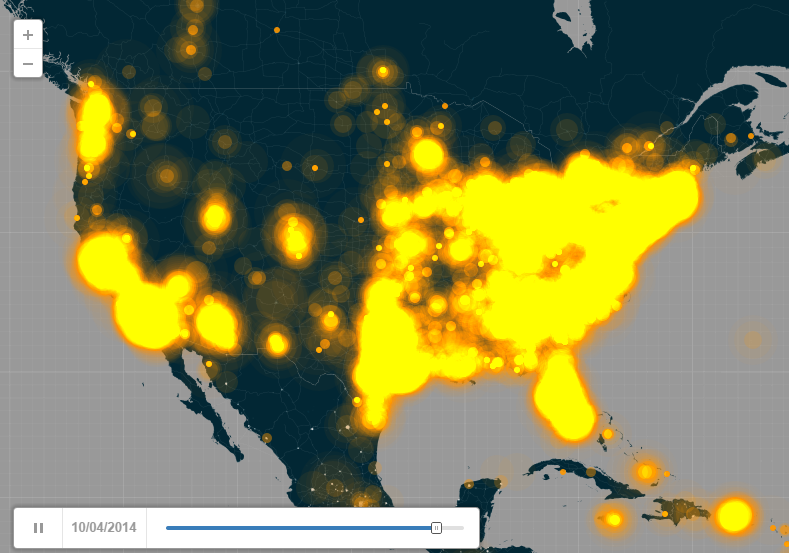


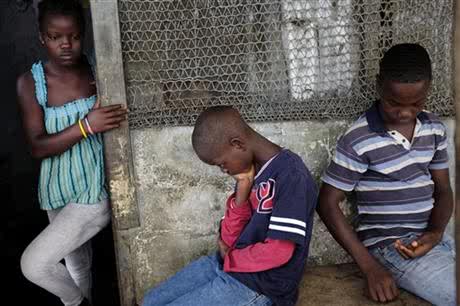


 OCTOBER 11, 2014
OCTOBER 11, 2014 



